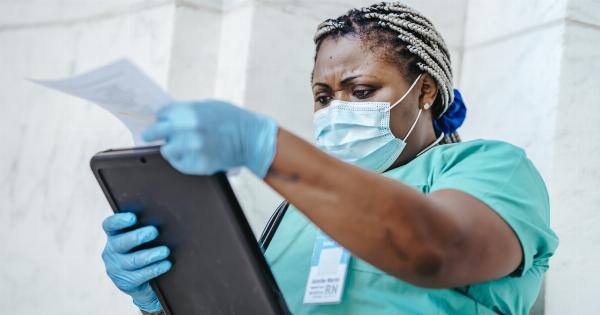High blood pressure, or hypertension, is a common medical condition that affects millions of people worldwide.
If you have hypertension, your blood is pumping through your arteries at a higher-than-normal pressure, which can increase your risk of heart disease, stroke, and other health problems. While medication is often prescribed to manage blood pressure, there are many natural approaches to controlling hypertension that can be just as effective. This article will explore some of the best ways to manage blood pressure without drugs.
1. Exercise regularly
Regular exercise is one of the most effective ways to manage blood pressure. It helps to strengthen your heart, reduce your weight, and improve your overall cardiovascular health. Aim for at least 30 minutes of moderate exercise most days of the week.
Examples of moderate exercise include brisk walking, cycling, swimming, or dancing. Consult your doctor before starting any exercise program, especially if you have other health conditions that may affect your ability to exercise.
2. Eat a healthy diet
Your diet plays an important role in managing your blood pressure. A heart-healthy diet emphasizes fruits, vegetables, whole grains, and lean protein sources, while limiting saturated fat, sodium, and added sugars.
Foods that can help lower blood pressure include leafy greens, berries, fatty fish, nuts, and seeds. Avoid processed and packaged foods, which are often high in salt and other unhealthy ingredients.
3. Reduce stress
Stress can have a significant impact on your blood pressure. Chronic stress can cause your body to release hormones that increase your heart rate, constrict your blood vessels, and raise your blood pressure.
To manage stress, try relaxation techniques such as meditation, deep breathing, or yoga. Other ways to reduce stress include getting enough sleep, spending time outdoors, and engaging in activities that bring you joy.
4. Maintain a healthy weight
Being overweight or obese can increase your risk of developing high blood pressure. Losing weight can help to lower your blood pressure and improve your overall health. Aim for a healthy weight based on your age, height, and body type.
Adopt healthy eating habits and engage in regular physical activity to achieve and maintain a healthy weight.
5. Quit smoking
Smoking is a major risk factor for hypertension and other health problems. Nicotine can cause your blood vessels to narrow, which can increase your blood pressure.
If you smoke, quitting is one of the most important things you can do to protect your health. Enlist the help of your doctor and loved ones to support you in your efforts to quit smoking.
6. Limit alcohol intake
Excessive alcohol consumption can raise your blood pressure. If you drink alcohol, do so in moderation. The American Heart Association recommends no more than one drink per day for women and two drinks per day for men.
7. Monitor your blood pressure regularly
Regular monitoring of your blood pressure is an important part of managing hypertension. Check your blood pressure at home using a home blood pressure monitor. Record your results and share them with your doctor at each appointment.
Keeping track of your blood pressure can help you and your doctor determine the effectiveness of your treatment plan.
8. Get enough sleep
Lack of sleep can contribute to high blood pressure. Aim for at least 7-8 hours of restful sleep each night. Establish a consistent sleep routine and avoid caffeine and electronics before bedtime.
If you have trouble sleeping, talk to your doctor about strategies to improve your sleep.
9. Consider natural remedies
There are many natural remedies that may help to lower blood pressure. These include herbs such as garlic, hawthorn, and olive leaf extract, as well as supplements like magnesium and potassium.
However, it is important to talk to your doctor before trying any natural remedies, as they may interact with other medications and can be harmful if not used properly.
10. Work with your doctor
While medication may not be necessary for everyone with high blood pressure, it can be an important part of managing hypertension for some individuals. Work with your doctor to determine the best treatment plan for your individual needs.
If you are taking medication, be sure to take it as prescribed and follow up with your doctor regularly to monitor your blood pressure and adjust your treatment plan if necessary.































